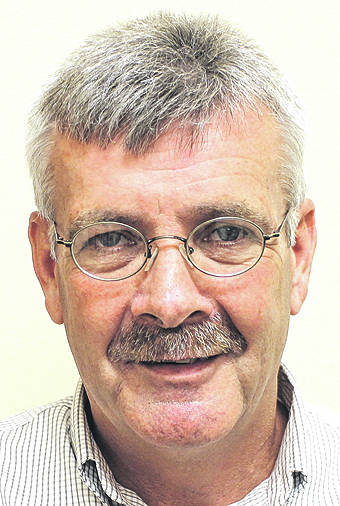
It is easy, on first reflection, to think that Governor Mike DeWine’s response to the Covid-19 pandemic was an overreaction. Especially when you consider that the flu has killed around 10,000 people in the U.S. this year and in the 2017-18 flu season, killed around 61,000 Americans, according to U.S. News.
As of Thursday, Covid-19, or the coronavirus, had only killed 22 people in the United States.
At first, I had several other similar reactions to the cancellations made by DeWine and a myriad of others. Like is there something about the coronavirus we are not being told? Or, 30 years ago, wouldn’t we have just shrugged it off and went about our regular routines? The problem with that, though, is that the world is not the same place it was 30 years ago.
It all seems strange, like almost nothing I have experienced in my 59 years on this planet, unless you consider the winters of 1977 and 1978 when, at least here in Ohio, we were snowed or frozen inside for weeks at a time.
On second reflection, though, there are other thoughts that come to mind. The first is that no one knows much about the virus. And as far as from what I understand, there is no way to keep you from getting it — other than the same precautions we take with the flu — and there is no real way to treat it.
Like Bright Local Superintendent Terry Fouch said this week: “This is uncharted territory.”
And that’s what causes me to pause and rethink things a little bit.
Mostly, I don’t believe the coronavirus is going to be as big an issue as it is being made out to be. But really, we have no idea. Really, we know little except that it is making people sick, it is killing people, and it is spreading across the globe quickly.
So while we all will be more than a little inconvenienced for some period of time, I have to think that being safe and taking precautions rather than doing nothing is much better than being sorry somewhere down the road.
For me, the inconvenience comes at an unpleasant time. For the next four weeks, I had planned to watch a lot of college basketball. First, there were conference championships this weekend, then three weeks of the NCAA Men’s Basketball Tournament, one of my favorite times of the year. And that’s not mentioning all the other sporting activities we are going to miss.
It is disappointing that I won’t be able to fill out an NCAA Tournament bracket this year, like I have every single year since I was probably 12.
On the other hand, who knows, maybe breaking from a longtime routine will be good. Maybe I’ll uncover new experiences that are more rich and healthy than sitting in front of a TV watching some guys try to throw a round ball through a round cylinder.
But there is something more important to consider. While the coronavirus may not be much of a threat to the youthful and healthy, it is a deadly threat to our elderly and those with weakened immune systems. And the more it spreads, the more they will be threatened.
As human beings, do we not have a responsibility to protect our most vulnerable — our elders, who have taught us much of what we know, and our vulnerable, who are not as blessed as the rest of us?
Speaking for the Bright Local Schools, Terry Fouch told me that the bottom line is: “We are going to protect our kids.”
Mr. DeWine and a multitude of others are trying to protect us all.
The powers that be have decided that humanity is more important than money and athletics. In this day and age, that is more than refreshing to know.
Jeff Gilliland is the editor of The Times-Gazette. He can be reached at [email protected] or 937-402-2522.


